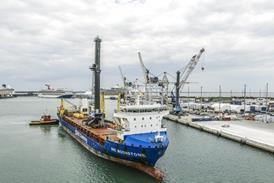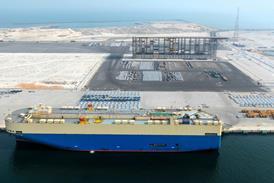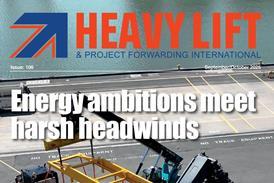The UK’s International Trade Committee has published a report that examines the objectives of recently adopted freeports policy, the package of measures available within the chosen sites, and the overall implementation of the policy.
During March, the UK government confirmed the location of eight freeports that will be established in England – at East Midlands Airport, Felixstowe and Harwich, Humber, Liverpool City Region, Plymouth, Solent, Thames and Teesside.
According to the International Trade Committee, the package of incentives associated with the UK freeports policy distinguishes it from the traditional freeports model. The committee said that it welcomes the range of measures the government has committed to, noting that freeports focused solely on tariff benefits would be unlikely to be successful in the UK.
“While the committee commends the government’s ambition to increase trade and investment across the UK, it remains to be seen how successful freeports will be at achieving this objective,” the organisation said.
“To succeed, the freeports policy will require extensive cross-departmental coordination. HM Treasury and the Ministry of Housing, Communities and Local Government have responsibility for the policy, while other departments will play a role in the operation and administration of freeports. We are concerned that, in light of the disagreement between HM Treasury and the Department for International Trade about which department was best-placed to give evidence to our inquiry, the necessary cross-departmental collaboration and clear accountability required to implement the policy is absent.”
The report also referenced the issue of economic displacement. “To minimise it, the government will need to be careful to distinguish between new economic activity and economic activity moving to a freeport from elsewhere. The committee recommends that the government, or the cross-Whitehall governance body, devise a framework for assessing economic activity occurring at freeports, distinguishing between that which is new and that which is relocated.”
With regard to Scotland, Wales and Northern Ireland, the committee said: “We received concerning evidence from the devolved governments about the UK government’s engagement with them in the development of this policy and their access to the information underpinning the policy. While the development of the freeports policy in the devolved nations is ongoing, we recommend that ministers and officials intensify engagement and information sharing efforts to ensure that the devolved governments have access to all the information necessary when making policy decisions.
“We support the devolved governments’ call for an appropriate funding allocation. It is important that freeports in the devolved nations are not disadvantaged due to the way in which funding is allocated. We call on HM Treasury to ensure that funding available to freeports in the devolved nations corresponds with awards in England.”
Commenting on the publication of the report, the British International Freight Association (BIFA) said that the findings do little to change the indifference to the freeports concept felt by the majority of its members.
Robert Keen, director general of BIFA, explained: “From a purely Customs viewpoint, the benefits of freeports are marginal and provide very few new advantages compared to the existing Customs Special Procedures, which since January 1, 2021, have no longer needed a guarantee to operate.
“The report also acknowledges the security risks that accompany freeports and any BIFA member that is considering setting up in one of the eight freeports that has been announced to date, should bear in mind that long-term storage is prohibited, and there is also a lack of clarity regarding Customs regimes.”
Hoping to gauge market sentiment toward freeports, law firm Womble Bond Dickinson has launched an online survey aimed at decision makers within UK businesses to assess how the policy will impact their activities.
The survey, which will be carried out throughout April and May, will measure business sentiment across a range of different sectors to find out how much businesses know about the benefits and opportunities that freeports can offer.
Peter Snaith, a partner at Womble Bond Dickinson, commented: “We can see the potential for freeports to strengthen the regions we operate in up and down the country. We represent all manner of clients who stand to benefit from freeports in some way and our team is keen to help deliver the government’s objectives for the country.
“We decided that a survey would be a great way of discovering business sentiment as it’s very clear to us that businesses need guidance and information around the process and how, for example, they can access certain similar benefits if they are not located within a freeport Customs site. There is, understandably, a lack of appreciation of the potential to which the positive effects of the new freeports can extend to businesses that are not situated on one of the designated sites.”
The results of the survey will provide the team with key findings to compile a comprehensive report for businesses and also public bodies associated with Freeport bids that will provide industry opinion and guidance on next steps.
Click here to complete the survey.
You can read HLPFI’s previous coverage and analysis of the UK’s freeport model here.
















